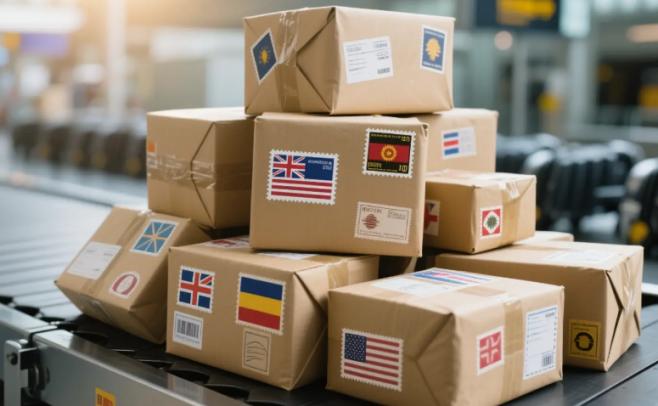
On September 15th local time, it was reported that the US's tax exemption policy for imported packages valued at $800 and below was officially cancelled on August 29, 2025. After the implementation of the new regulations, small packages will need to pay all applicable taxes, and the original tax exemption policy has been permanently terminated. Postal carriers have a 6-month transition period to choose to pay a fixed tax of $80 to $200 per package. On the first day of the policy implementation, the volume of packages sent from 192 countries to the US decreased by 81%, and 88 postal operators suspended services to the US. What impact will this new policy have on American citizens and the global economy?
Firstly, on the impact on consumers: The cost of consumption has risen, and the cross-border e-commerce goods relied upon by low-income groups have lost their price advantage and their selection range has been significantly reduced, suffering the greatest impact. After the cancellation of the tax exemption, all imported packages valued at $800 and below need to pay tariffs and possible customs clearance fees. At the same time, the import costs of raw materials and intermediate products for manufacturing have risen, exacerbating inflationary pressure. Low-income families are forced to purchase domestic substitutes at higher prices or reduce their demand, resulting in a decline in social welfare. The US National Bureau of Economic Research reported that consumers may spend at least $10.9 billion more each year due to this, equivalent to an additional $136 per household, significantly increasing the burden on low-income groups. In addition, local monopolistic enterprises benefit, and the innovation willingness and ability are suppressed. For example, US footwear brands will transfer their inventory to local warehouses and use policy barriers to consolidate their market position.
Secondly, on the impact on international trade: The US cancelled the tax exemption policy citing "equivalent tariffs" and "responding to the fentanyl crisis", which is essentially a protectionist measure, ignoring the global trade interconnection. At the same time, inflation pressure has intensified, trade rules have been restructured, and new tariffs have increased the import costs of raw materials and intermediate products for manufacturing, pushing up the prices of end products. The Universal Postal Union pointed out that the policy has led to a sharp decline in global postal business volume, and many postal operators suspended services to the US, eroding the international landscape of cross-border e-commerce. The head of DHL sorting center in Germany said that due to the US customs not clearly defining the tax payment process, packages could not be guaranteed to be delivered, and suspending services was the only option. Small and financially-strapped sellers were forced to exit the market due to being unable to bear the cost of overseas warehouses.
Thirdly, on the impact on the US itself: According to data from the US Customs and Border Protection (CBP), the US receives approximately 3.8 million small packages every day. If taxed on a per-item basis, the daily administrative cost of customs will exceed $100 million in the short term. The Oxford Economics Institute estimated that if the US government wants to clear and tax all small packages one by one, it will need to add tens of billions of dollars in budget to expand the system and increase staff, otherwise it will face the risk of nationwide port congestion. In addition, after the tax exemption policy for small packages was abolished, the US customs will need to handle the new tariff filings and the customs clearance time is expected to be prolonged, and the goods may face greater delays risks. The Universal Postal Union pointed out that this move by the US has brought uncertainty to the global postal cooperation system, and many countries have suspended sending packages to the US, further intensifying the customs clearance pressure. The unilateral cancellation of the tax exemption policy for low-value goods by the US government is causing a chain reaction in cross-border logistics and small businesses, bringing uncertainty to the global postal cooperation system.
The US's abolition of the "small package tax exemption" policy is like throwing a huge rock into the calm lake of global trade patterns, causing waves. In the future, the global trade pattern will continue to undergo restructuring and transformation under the continuous fermentation of this policy. How to seek balance and development in the new trade environment will be a major issue for governments, enterprises, and relevant stakeholders to jointly face.

On January 7th local time, GameStop (GME.US) announced that the company's board of directors had approved a potential executive compensation package worth $3.54 billion, which was targeted at the company's CEO, Ryan Cohen. At the same time, this new compensation package set extremely high performance thresholds: Cohen, the CEO, needed to increase the company's market capitalization from $9.5 billion to $100 billion.
On January 7th local time, GameStop (GME.US) announced that…
According to the British media The Guardian, recently US Pr…
In today's era of deep integration of globalization and dig…
In early 2026, US President Trump forcibly took control of …
Recently, the corn market dynamics analysis released by Aus…
Donald Trump has proposed an "immediate" restriction on lar…